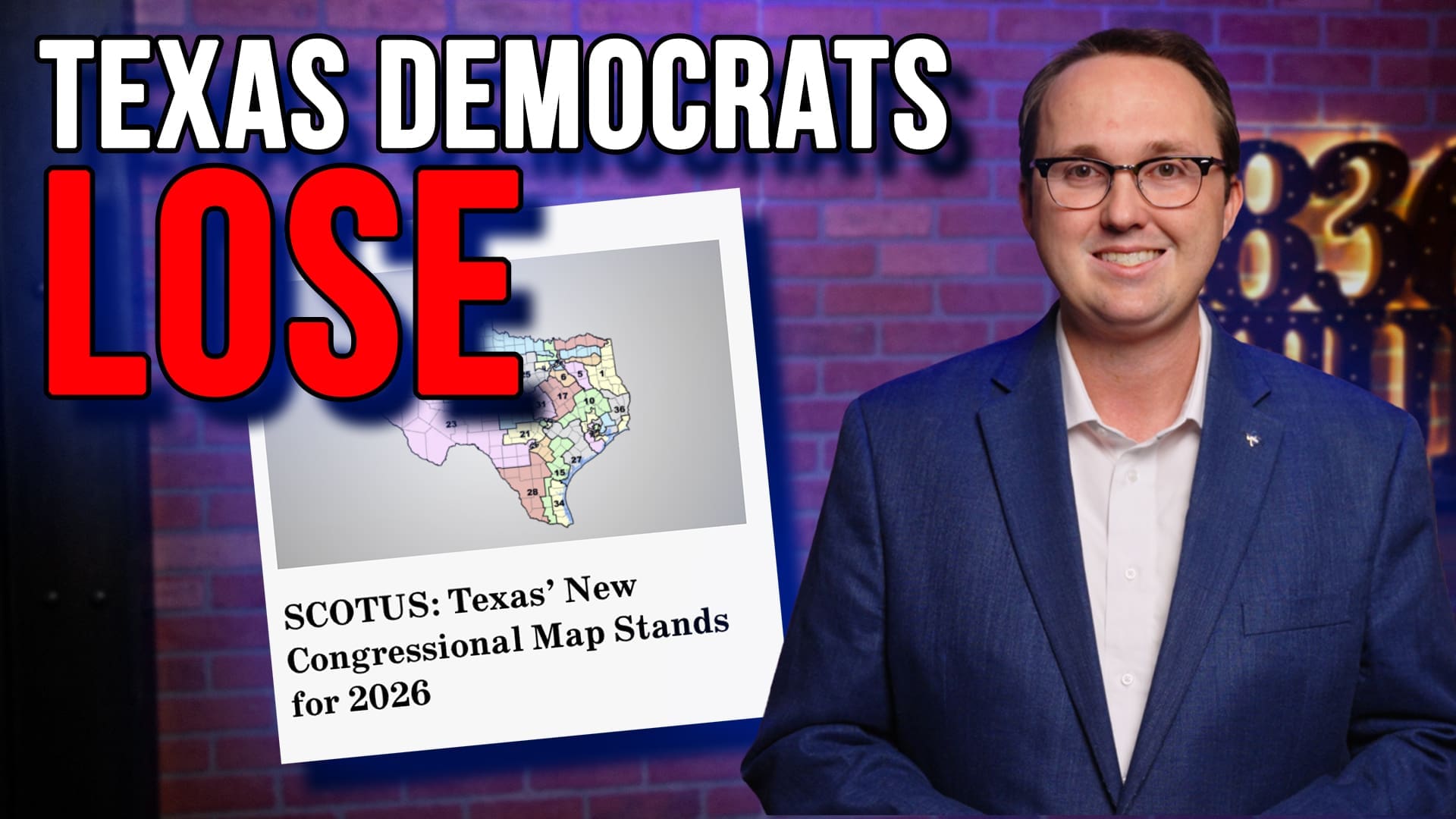Two weeks ago, the Texas Senate passed major election integrity legislation. Two weeks later, the bill is still sitting on Texas House Speaker Dennis Bonnen’s desk.
Senate Bill 9 by State Sen. Bryan Hughes (R–Mineola) would provide a much-needed update to Texas election law to both prevent voter fraud from occurring on the front end as well as assist law enforcement from holding those who engage in it.
Among other things, Senate Bill 9 increases criminal penalties for anyone who provides false information on a voter registration form (currently a Class B misdemeanor) to a state jail felony.
The legislation also increases criminal penalties for illegally casting a ballot—including a provisional ballot—and requires paper ballot backups for electronic voting machines.
The bill was passed by the Texas Senate on April 15 by a party-line vote of 19-12. It was then officially received in the Texas House the following day, April 16.
While it can certainly happen sooner, legislation frequently takes a couple of days to be referred to a relevant committee. Once it is received, the speaker and other lawmakers consider which committee the legislation should go to and who should sponsor it.
But those conversations don’t last two weeks. And yet, such is the case with SB 9, which is currently languishing on Bonnen’s desk. The reason for the delay remains a mystery, with Bonnen refusing to respond to request for comment on the issue.
However, it’s not just SB 9 taxpayers should be concerned about being delayed.
Almost 20 bills have been sitting on Bonnen’s desk for over a week. Among them are Democrat-opposed Senate Bill 29, which would ban taxpayer-funded lobbying, and Democrat-opposed Senate Bill 422, which prevents cities from imposing fines and fees on citizens who don’t live in them.
During the decade in which former House Speaker Joe Straus held the gavel, he would frequently delay—or even outright refuse—to refer legislation opposed by Democrats to committee in order to assist them in preventing the passage of legislation.
Straus knew the vast majority of bills that die each session aren’t killed by a particular legislator or the body on a floor vote, but by the clock.
That’s still the case this legislative session. And with the end of the Texas Legislature’s 140-day session fast approaching, the clock is ticking.





